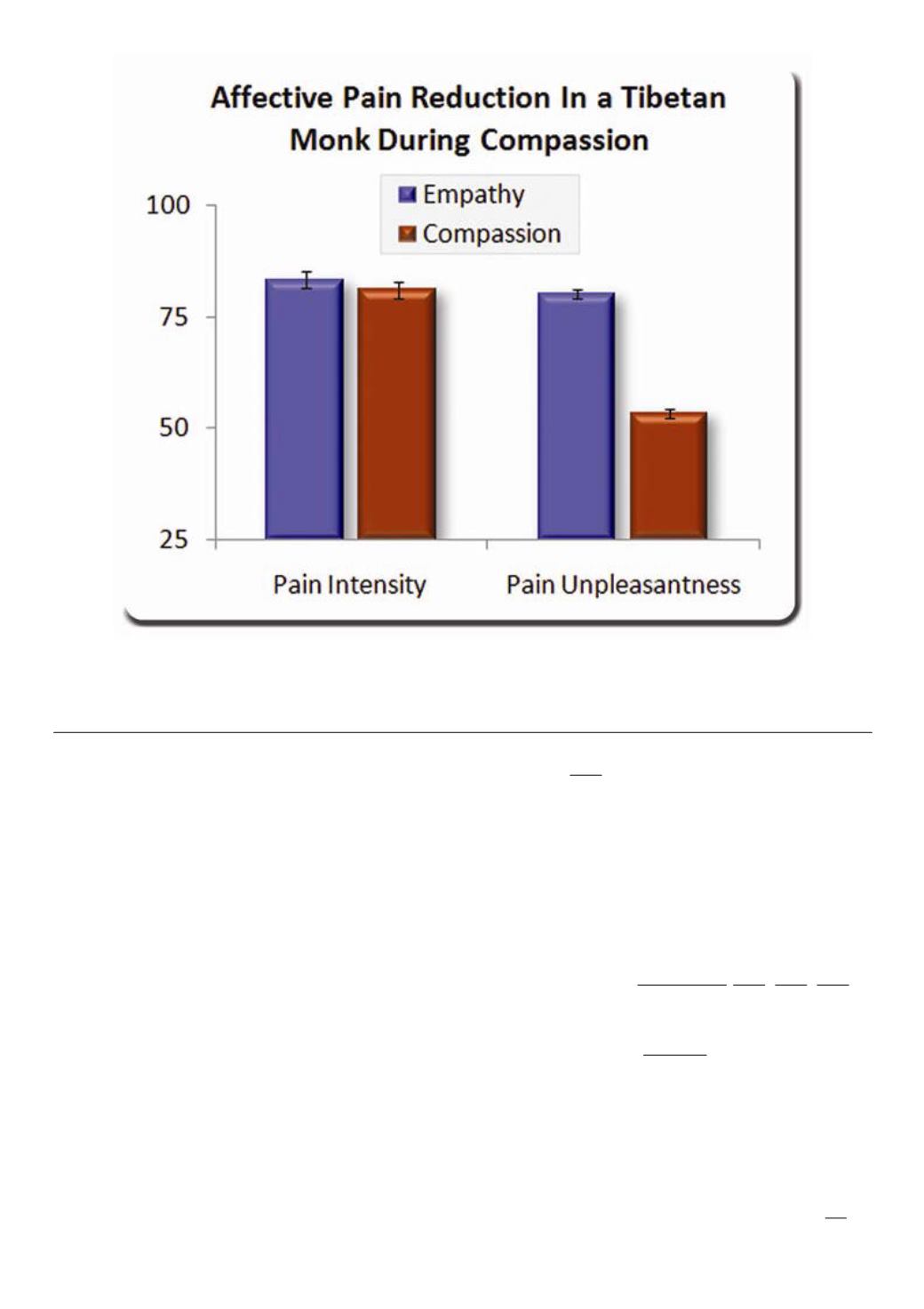
Figure 2.
A long-term Tibetan practitioner was asked to enter states of empathy (resonating with the suffering of
another) and compassion (generating feelings of warmth and love towards the suffering of another) while receiving pain
or viewing another person in pain. There was a selective reduction of the affective dimension of pain during
compassion.
As it turns out, opioids are the most powerful painkillers known
Thus, if opioids are released naturally when one is in a state of compassion, it is quite possible that
the person would be less afflicted by their own physical, emotional or even vicariously experienced
pain. Further, opioids induce pleasurable feelings, hence their role in addiction. A more radical
proposition is that compassion may, in a sense, be addictive! As we learn to volitionally generate
compassion we may be learning to naturally release opioids. These chemicals would reinforce the
compassionate behavior through the positive feelings elicited. Ultimately, this should perpetuate
the cycle, as it does mal-adaptively in substance abuse. Importantly, evidence is beginning to
show this may actually be the case. Recent work from our lab, and others, suggests that brain
regions involved in opioid signaling are active during compassion (see
Further, preliminary unpublished data in an advanced Tibetan monk suggests pain may also be
reduced in this state. While generating compassion, which we already know activates opioid areas
in this man’s brain, pain unpleasantness reports dropped substantially (
. These results, if
they hold for larger samples, will be extremely important. Not only would compassionate behavior
lead to a kinder society through increased desire and motivation to help but the individual being
compassionate would suffer less in doing so.
To summarize this chapter, concentrative and mindfulness meditation seem to influence pain, but
likely through different means. Consistent with ancient claims, attending mindfully seems to reduce
pain, possibly through changes in the mental stance the individual takes towards the stimulus
purportedly involving less appraisal of one’s experience. Compassion offers yet another intriguing
265


